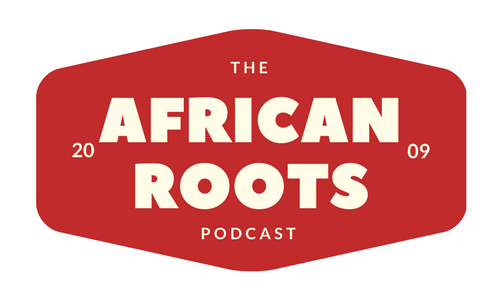Welcome back to the African Roots Podcast! You can always reach me HERE!
Well, the end of July is here, but don’t fret—there is still a full month of summer left! Enjoy these days and nights and get out there and make some memories by savoring the sights and sounds of summer. From the birds, soft breezes and even the crickets at night time–enjoy them before cooler and colder weather arrives.
***********************************************************************************

Tune in tonight to hear Bernice Bennett’s show as she interviews Teresa Vega, talking about her own genealogical journey to document her Boricua–or Puerto Rican history and legacy! Many of us know Teresa from social media as she is active online and many of you have seen her face on some of the tv commercials for Ancestry. This should be an interesting dialogue and we need to be aware of another dimension of the African diaspora, specifically our many members of the extended Latino community. There are some amazing records on Fold3, reflecting enslaved people in Puerto Rico, and hopefully many are using these records. Hopefully we can also begin to see more people studying the history of enslaved families throughout the diaspora.
***********************************************************************************
Maryland Family History Day Workshop
August 13 is the date of the Family History Workshop to take place at the Family History Center in Essex Maryland. There will be workshops for researchers of all levels. There will also be some sessions for people with specific needs from searching databases online, or learning about resources for specific ethnic groups as well. Margo Williams, who many of us know from AAHGS, the Afro-American Historical and Genealogical Society will be speaking in the afternoon on that date. Her topics are Native American Genealogy and also African American Genealogy.
The workshop is free and open to the public. Registration is required online in advance. HERE is the link to register.
***********************************************************************************
 Source:
Source:
“United States, Freedmen’s Bureau Records of Persons and Articles Hired, 1865-1872.” Database with images. FamilySearch. http://FamilySearch.org : accessed 2016. Citing various NARA microfilm publications. Washington, D.C.: National Archives and Records Administration.
There are two new collections now available for African American research, on Family Search. We all know that the Freedmen’s Bureau was indexed recently, well now they have put up a collection of records in a different way. They are United States Freedmen’s Bureau Records of Persons and Articles Hired. This is unique as it reflects how the Bureau not only provided services to people, but it also hired individuals and received articles from the local population. I have found my great grandfather among Bureau records who donated lumber for the construction of a Freedmen’s school. This was not a story that survived family oral history, but there was the record reflecting this act. Now that story can be incorporated into the family’s story.
The second collection is called United States Freedmen’s Bureau Claims Records. There were hundreds of soldiers who served in the US Colored Troops who made claims to receive the bounty payment that they were promised after enlisting in the Union Army. I have posted some of those claims in a series of articles on one of my websites, showing soldiers making bounty claims in Arkansas. A special thanks to Michael John Neill for sharing these new links!
***********************************************************************************
Speaking of the Freedmen’s Bureau, do not forget to use the new tool for African American Genealogy: Mapping the Freedmen’s Bureau. This site is essential once you have gotten to that place in your research where you need to provide the stories of the early days of freedom.
Many researchers collect names, and work their way back to 1870, and then hit a brick wall. Meanwhile there are thousands of additional records that will show you what happened when freedom came. How many of your know when and how your enslaved ancestors became free? In some cases the story is right there in those records. The mapping site allows you to see how many bureau offices existed in the state where your ancestors lived. Because it uses Google maps, it provides a geographically accurate view of the ancestral community. In addition there are other maps. The Freedman’s Bank is mapped for you, as are Freedmen hospitals and schools, contraband camps, and even a map of the battle sites in which Black men fought in the Civil War.
There are chances that your ancestors lived near these sites, and these should also be a part of the family narrative. So make sure that you use this tool frequently. Mapping the Freedmen’s Bureau.
**********************************************************************************
Wrapping it up for this week! Thank you so much for tuning in to listen and please note that you are greatly appreciated. In the meantime, keep researching, keep documenting and keep sharing what you find!




 For Info Check HERE
For Info Check HERE



